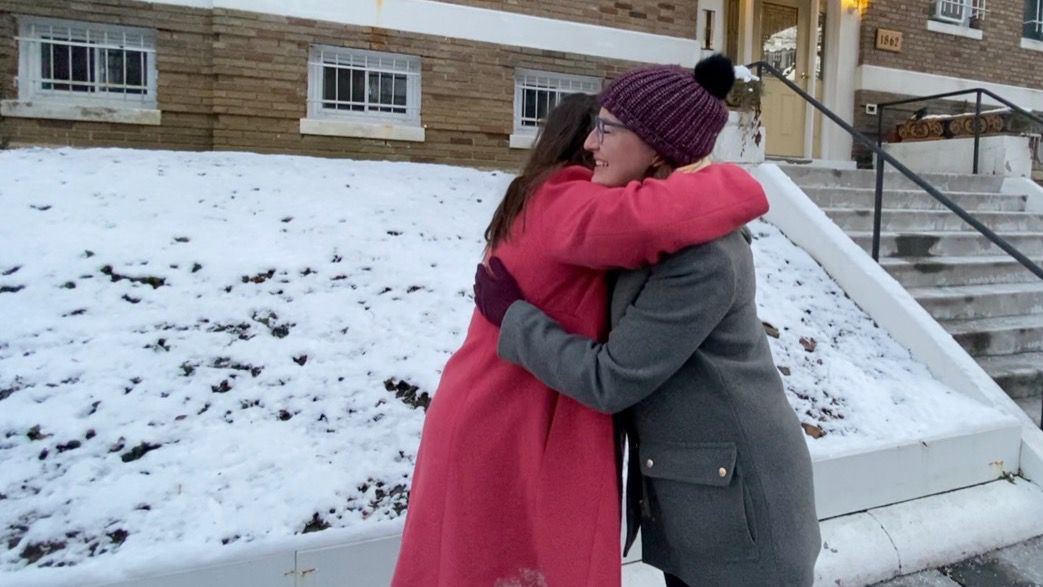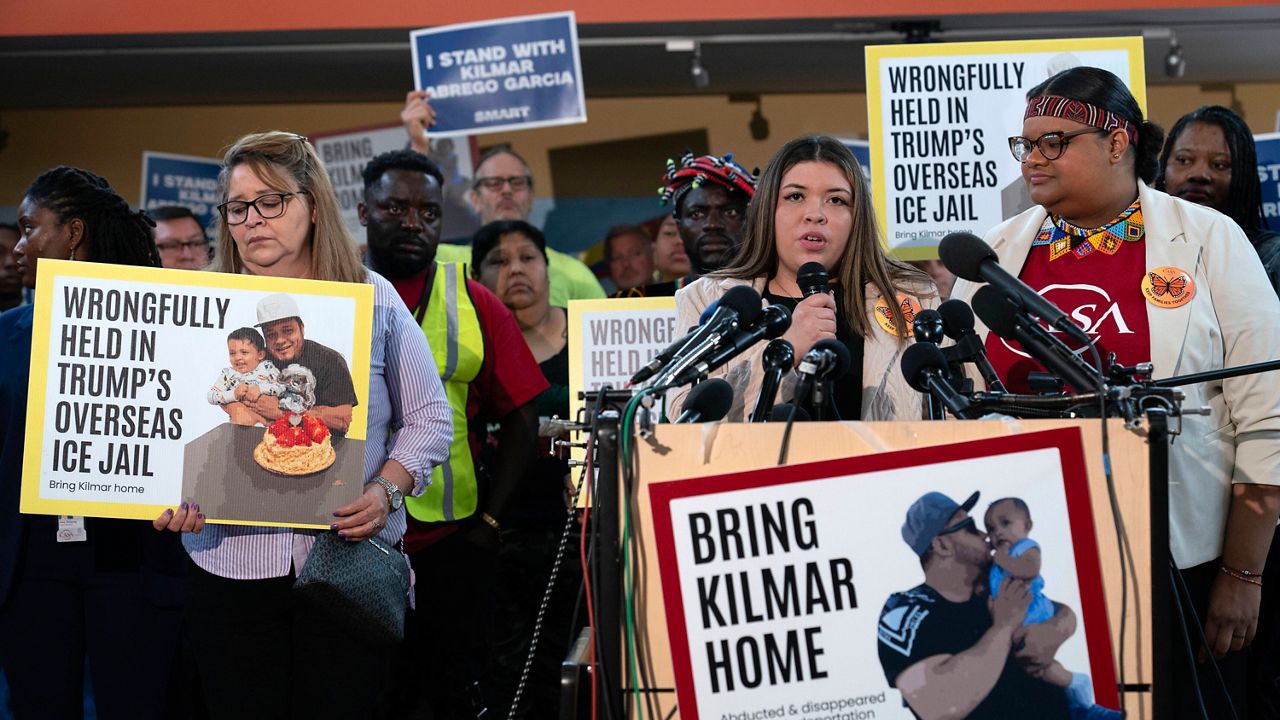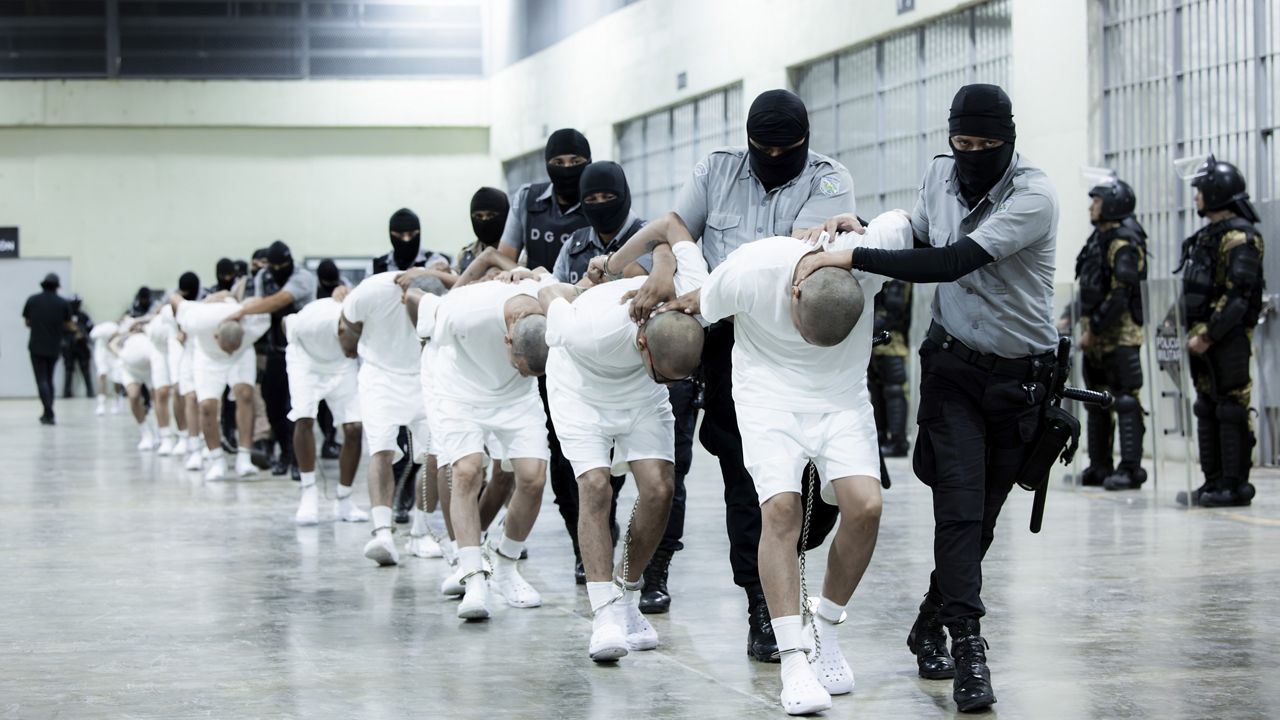WASHINGTON — Alex Fleming was walking to meet a friend for dinner in the Columbia Heights neighborhood of Washington, D.C. at 7 p.m. days before Thanksgiving, when she was hit by two random gun shots.
“I thought, okay, I might die. Then, there was a point where it’s just out of my hands now and you just have to fight,” Fleming said in an interview with Spectrum News.
Amberli Young, the friend Fleming was meeting, heard the gunfire and sprung into action.
“I was pressing on the wound while I was talking to the dispatcher,” Young said, who found Fleming before she had collapsed to the ground.

"It’s not something I ever thought I’d be confronted with, an open wound and there was blood and it was on my friend. In talking to the dispatcher and making eye contact with Alex, I did somehow have a feeling she was going to be okay,” she said.
The last two years have seen record-breaking numbers of gun deaths in the U.S. according to new data from the Centers for Disease Control and Prevention. In 2020, more than 45,000 people died of gunshot wounds—up 14 percent from 2019, the previous high water mark for gun violence.
Last year saw another record broken. According to the Gun Violence Archive, more than 20,000 homicides were caused by guns in 2021, the most since the non-profit began tracking shootings eight years ago.
“It’s feeling more and more unsafe as the days go by,” said Dr. Bindi Naik-Mathuria, an associate professor of surgery and pediatrics at Baylor College of Medicine in Houston.
As a trauma surgeon in Houston, Naik-Mathuria is familiar with treating shooting victims like Fleming. Now, she is researching the effects of gun violence, tracking every shooting death and injury in Houston with the help of a $684,000 federal grant from the Centers for Disease Control and Prevention.
“What we are trying to do is really understand the whole spectrum of it. How bad is gun violence—it’s worse than we even think because it’s not just the deaths, it’s the non-fatal injuries that are happening as well,” she said.
Naik-Mathuria’s project is one of nearly two dozen firearms-focused projects financed by the federal government, studying topics like suicide, firearms ownership and safety policies.
Federal funding for gun research dried up in the 1990s after lobbists pushed Congress to block the CDC from spending money to “advocate or promote gun control.”
In 2018, former President Donald Trump signed a government spending bill that allowed the agency to conduct gun violence research. Lawmakers then allocated $25 million to be split between the CDC and the U.S. National Institutes of Health. The first findings will be released later this year.
“It’s a dream come true. No one ever thought there would be this kind of funding for firearm violence. It’s going to let us learn so much more about this problem and then eventually identify ways to prevent it,” Naik-Mathuria said.
Naik-Mathuria is trying to identify patterns in Houston's shootings. She compares it to doctors trying to understand a disease, before developing a vaccine.
“I’m starting to work with other researchers in other cities like Chicago where we can compare our findings and see if these are similar or different,” she explained.
Both Fleming and Young are still grappling with the aftermath of the gun violence they experienced.
The bullets pierced Fleming's lungs and grazed her liver. After 11 days in the hospital, she's recovered physically, but her mental recovery is still ongoing.
“It’s tough. It’s hard to know when I’ll be okay to go back outside. But, it will happen, soon,” she said wiping away tears.
Both hope that the research can lead to solutions.
“Any kind of data we can collect on this, from community data and the violence can be helpful. It’s hard to rationalize why it happened and data is one way to approach it,” Young said.
“You should be able to walk in your neighborhood and meet your friend for dinner and not have your life put at risk. I think everyone deserves that right,” Fleming said.
The CDC will accept the next round of applications for gun violence research grants starting Feb. 4.





